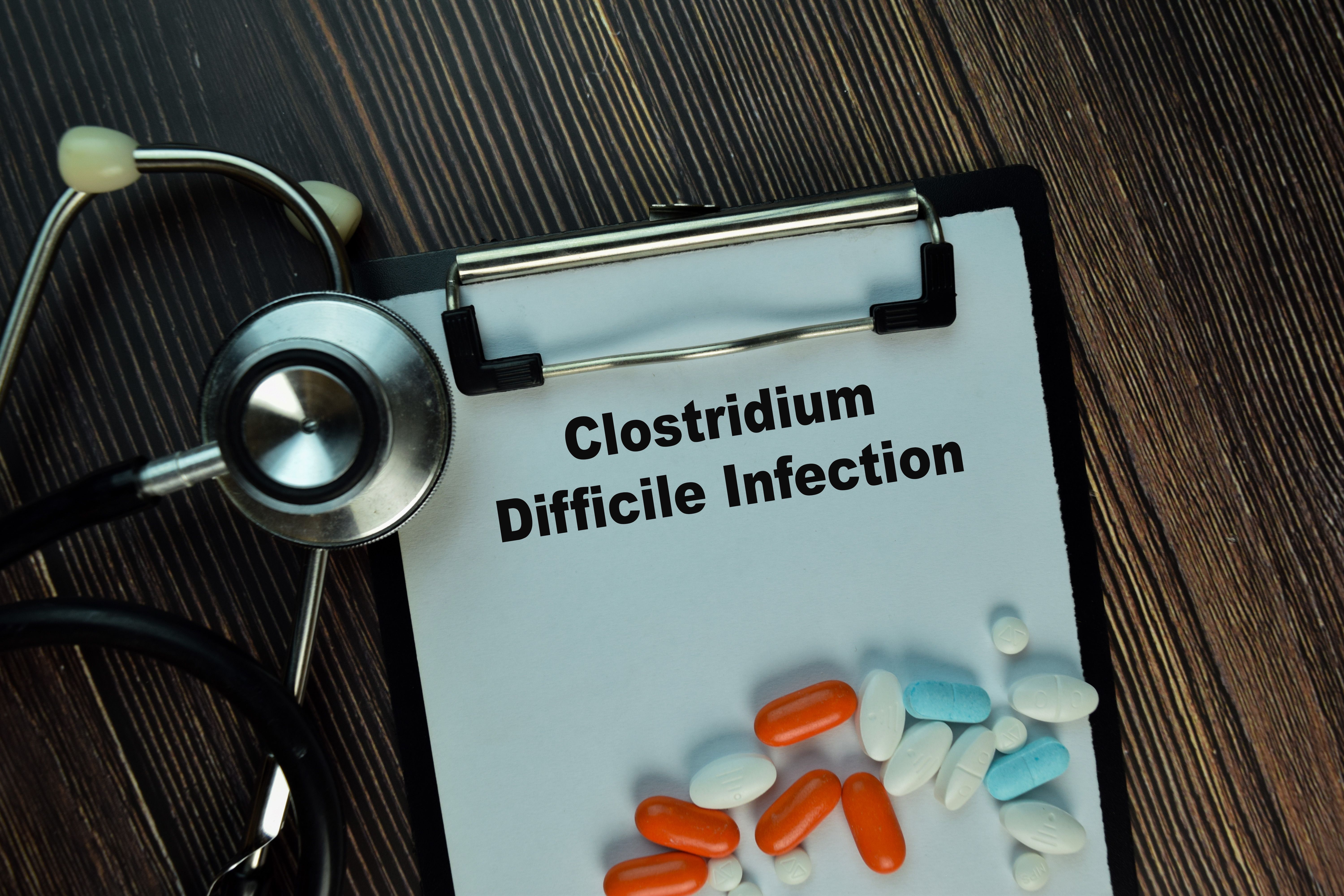Article
Study Finds Positive Safety Profile, Efficacy With Fecal Microbiota, Live-jslm for Recurrent C. diff in Immunocompromised Patients
Author(s):
Treatment-emergent adverse events were reported in a similar proportion of participants with recurrent Clostridioides difficile infection, both with and without immunocompromising conditions.
Findings from a new study demonstrate a positive safety profile and efficacy with the use of Fecal Microbiota, Live-jslm (FMBL) for recurrent Clostridioides difficile (C. diff) infection (CDI) in immunocompromised patients.
Credit: syahrir - stock.adobe.com.

C. diff causes an estimated 500,000 infections and 29,300 deaths in the United States each year, and immunocompromised patients have a heightened risk of primary and recurrent CDI. Although fecal microbiota transplantation (FMT) has shown efficacy in reducing recurrent CDI, a lack of standardized products and procedures presents significant safety concerns. Additionally, patients with immunocompromising conditions may be at an increased risk for adverse events (AEs) related to FMT, such as systemic infection.
FMBL is the first FDA-approved, microbiota-based live biotherapeutic product indicated for the prevention of recurrent CDI in individuals ages 18 and older, following antibiotic treatment for recurrent CDI. It is a standardized, stabilized microbiota suspension containing between 1x108 and 5x1010 CFU/mL of fecal microbes, including greater than 1x105 CFU/mL of Bacteroides. It is administered rectally as a 150 mL single-dose without anesthesia and requires no bowel prep or colonoscopy.
The efficacy of FMBL was demonstrated in the PUNCH CD3-OLS trial of participants aged 18 years or older with medically documented recurrent CDI, or at least 2 episodes of severe CDI resulting in hospitalization. Participants were monitored for recurrence and treatment-emergent AEs (TEAEs) for at least 6 months after treatment, and treatment success was defined as the absence of recurrence through 8 weeks after treatment.
In addition, patients with immunocompromising conditions were identified based on concomitant medication use and medical history. Corticosteroids were considered to be immunocompromising. Of the 483 total participants, 91 (18.8%) had immunocompromising conditions, most of which were secondary to concomitant medication use.
“[Immunocompromised] patients often receive antibiotics to treat a range of infections in addition to prophylactic antibiotics,” explained study author Glenn Tillotson, PhD, FIDSA, FCCP, in an email to Pharmacy Times. “While these antibiotics have a broad spectrum to cover potential pathogens, they can contribute to a disruption of the volume and diversity of the gut microbiome, a condition known as dysbiosis, which leaves immunocompromised patients at an elevated risk of recurrent C. diff infection.”
At 8 weeks, treatment success was comparable in participants with and without immunocompromising conditions (79.5% and 73.5%, respectively). Sustained clinical response through 6 months was maintained in 80% and 85% of FMBL responders with and without immunocompromising conditions, respectively.
TEAEs were reported in a similar proportion of participants with and without immunocompromising conditions (64.8% and 62%, respectively). Most participants with and without immunocompromising conditions experienced TEAEs that were mild (42.9%) or moderate (47.7%) in severity.
Most serious TEAEs were related to CDI or pre-existing conditions and occurred across different system organ classes. Most occurred in less than 1% of participants, without clustering or trends. Only 1 patient with an immunocompromising condition and 2 patients without immunocompromising conditions discontinued treatment due to TEAEs.
“By definition, immunocompromised patients lack a normal immune system and are prone to a wide range of infections,” Tillotson said. “This analysis reflects results from a patient population that is seen in clinical practice.”
Gastrointestinal events were the most frequently reported TEAEs. Additionally, TEAEs reported in 5% or more of participants included gastrointestinal disorders, pyrexia, urinary tract infection, musculoskeletal and connective tissue disorders, and nervous system disorders. No participant with immunocompromising conditions was reported to experience bacteremia or fungemia.
Based on these findings, the investigators concluded that no major safety signals were identified in the PUNCH CD3-OLS trial. The efficacy outcomes were also consistent with the results of the pivotal phase 3 randomized controlled trial, PUNCH CD3.
REFERENCE
Alonso CD, Dubberke ER, Fischer M, Tillotson GS, Bidell M, Guthmueller B, et al. Safety and Efficacy of Fecal Microbiota, Live-jslm in Reducing Recurrent Clostridioides difficile Infection in Immunocompromised Participants. 33rd European Congress of Clinical Microbiology and Infectious Diseases; April 15-18. Accessed May 8, 2023.
Newsletter
Stay informed on drug updates, treatment guidelines, and pharmacy practice trends—subscribe to Pharmacy Times for weekly clinical insights.






